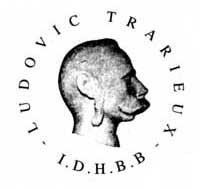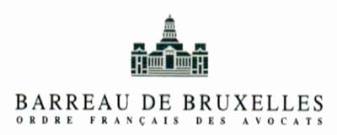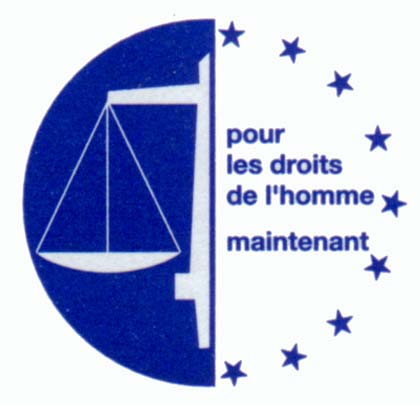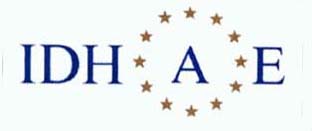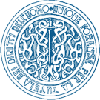|
|
|
|
|
|
|
INSTITUT DES DROITS DE L'HOMME DU BARREAU DE BORDEAUX |
INSTITUT DES DROITS DE L'HOMME DU
BARREAU DE BRUXELLES |
INSTITUT DES DROITS DE L'HOMME DU
BARREAU DE PARIS |
INSTITUT DES DROITS DE L'HOMME DES AVOCATS EUROPEENS |
UNIONE FORENSE PER LA TUTELA DEI DIRITTI DELL'UOMO |
Internationalen
Ludovic-Trarieux-Menschenrechtspreis 2010
Ludovic-Trarieux International Human
Rights Prize 2010
Prix
International des droits de l'homme Ludovic-Trarieux 2010
Premio
Internacional de Derechos Humanos Ludovic Trarieux 2010
Prêmio Internacional de Direitos Humanos Ludovic Trarieux 2010
Premio Internazionale per i Diritti Umani Ludovic Trarieux 2010
Ludovic Trarieux Internationale Mensenrechtenprijs 2010
Seit 1984
"Einer der höchsten internationalen Auszeichnungen für
besondere Verdienste bei der Verteidigung der Menschenrechte"
“L’hommage des avocats à un avocat ”
“The award
given by lawyers to a lawyer”
“El homenaje de abogados a un abogado
”
“L'omaggio degli
avvocati ad un avvocato”
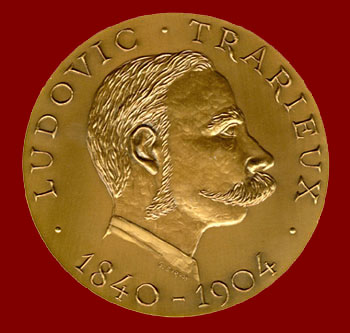 Karinna
MOSKALENKO (RUSSIE) **
Karinna
MOSKALENKO (RUSSIE) **
Anwältin für Menschenrechte
erhielt den Internationalen Ludovic-Trarieux-Menschenrechtspreis 2010
"Prix International des droits de l'homme Ludovic-Trarieux" 2010 Karinna Moskalenko im aserbaidschanischen Baku geborene, lebt in Moskau und Strassburg. Sie hatte 1976 ihr Jura-Studium in
Leningrad abgeschlossen. Danach arbeitete sie als Anwältin. Nach einem
Aufbaustudium zu Menschenrechten an der Universität von Birmingham 1994
spezialisierte sie sich auf internationales Recht und Menschenrechte. Heute
vertritt sie beim Europäischen Menschengerichtshof in Strassburg mehrere Kläger
aus Russland. Bekannt geworden war Moskalenko 2000, nachdem ihr in Kalkutta die
Freilassung von fünf russischen Piloten gelungen war, die Aufständischen Waffen
geliefert hatten. Die Piloten wurden nach über vier Jahren freigelassen, ohne
Moskalenko hätte ihnen möglicherweise die Todesstrafe gedroht. Sie ist eine
Anwältin mit tadellosem ethischem Leumund, und ihr Mut angesichts ständiger
Einschüchterungen ist eine Quelle der Inspiration für uns alle, die wir das
Privileg haben, mit ihr zusammenzuarbeiten. Karinna Moskalenko vertritt die getötete russische Journalistin Anna
Politkowskaja und zahlreiche andere Kreml-Kritiker.Moskalenko ist eine aktive
Anwältin des Teams von Verteidigern für den politischen Gefangenen Mikhail
Khodorkovsky, und sie verteidigt ausserdem den Oppositionsführer Garry Kasparov,
der sich Medienberichten zufolge, als Resultat der Strassendemonstrationen in
Moskau und St. Petersburg vor dem Staatssicherheitsdienst (FSB) zu melden hat. Als der Europäische
Menschengerichtshof in Strassburg 2001 erstmalig öffentlich eine Klage aus
Russland verhandelte, vertrat mit Moskalenko erstmals eine Anwältin aus
Russland einen Kläger vor dem Menschengerichtshof. Derzeit kämpft sie in Strassburg für die Rechte der ermordeten
Journalistin Anna Politkowskaja. Die Liste ihrer Mandanten liest sich wie ein
"Who is who" der international bekannten Kreml-Kritiker: Die Familie
von Anna Politkowskaja, der frühere Schach-Weltmeister Garri Kasparow, Michail
Chodorkowski, der 2006 mit Polonium in England getötete Alexander Litvinenko,
die moldawische Journalistin Natalja Morar, die aus ihrer Heimatstadt Moskau
nach Moldawien abgeschoben worden war. Sie liessen sich von Karinna Moskalenko
ebenso vertreten, wie Folteropfer aus Tschetschenien und viele namenlose Opfer
in den Mühlen des russischen Strafvollzuges. Im Oktober 2008 wurden in ihrem Auto Quecksilber
gefunden . Created
in 1984, the "International Human Rights Prize Ludovic -Trarieux” is awarded
to " a lawyer, regardless of nationality or Bar, who thoroughout his
career has illustrated, by his activity or his suffering, the defence of human
rights, the promotion of defence rights, the supremacy of law, and the struggle
against racism and intolerance in any form ". It is
the oldest and most prestigious award given to a lawyer in the world,
commemorating the memory of the French lawyer, Ludovic Trarieux (1840-1904),
who in the midst of the Dreyfus Affair, in France, in 1898, founded the "
League for the Defence of Human Rights and the Citizen ", because, he
said: " It was not only the single cause of a man which was to be
defended, but behind this cause, law, justice, humanity ". The
first Prize was awarded on March 29th, 1985 to Nelson Mandela then in jail. It
was officially presented to his daughter, Zenani Mandela Dlamini, on April 27th
1985, in front of forty presidents of Bars and Law Societies from Europe and
Africa. It was the first award given to Mandela in France and the first around
the world given by lawyers. On February 11th 1990, Nelson Mandela was released.
Since then, it was decided that the Prize would be awarded again. Since
2003, the Prize is awarded every year in partnership by the Human Rights
Institute of The Bar of Bordeaux, the Human Rights Institute of the Bar of
Paris, the Human Rights Institute of The Bar of Brussels, l'Unione forense per
la tutela dei diritti dell'uomo (Roma) and the European Bar Human Rights
Institute (IDHAE) whose members are the biggest european law societies fighting
for human rights such as the Union Internationale des Avocats (UIA),
Rechtsanwaltskamme Berlin, Ordre français des Avocats du barreau de Bruxelles,
barreau de Luxembourg or Polish National Council of the Bar (Warsaw). It is presented every year in a city
that is home to one of the member Institutes. 1985:
Nelson MANDELA (South Africa) 1992:
Augusto ZÚÑIGA PAZ (Peru) † 1994:
Jadranka CIGELJ (Bosnia-Herzegovina) 1996
Nejib HOSNI (Tunisia) and Dalila MEZIANE (Algeria). 1998
ZHOU Guoqiang (China) 2000
Esber YAGMURDERELI (Turkey) 2002
Mehrangiz KAR (Iran) 2003
Digna OCHOA and Bárbara ZAMORA (Mexico) 2004: Akhtam NAISSE (Syria) 2005: Henri BURIN DES ROZIERS
(Brazil) 2006: Parvez IMROZ (India) 2007 :
René GÓMEZ MANZANO (Cuba) 2008 : U AYE MYINT (Burma) 2009 : Beatrice MTETWA (Zimbabwe) 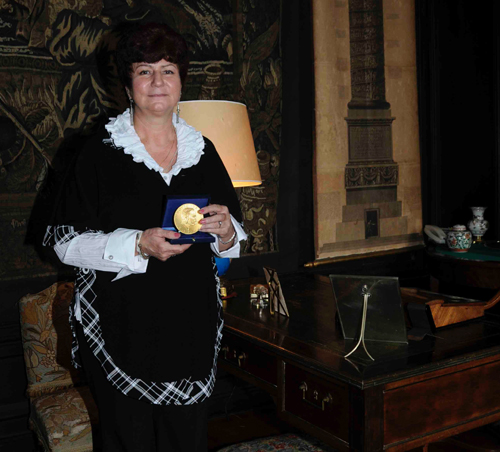
Ludovic-Trarieux International Human Rights Prize 2010
"Premio Internacional de Derechos Humanos Ludovic Trarieux" 2010
"Premio Internazionale per i Diritti Umani Ludovic Trarieux" 2010
